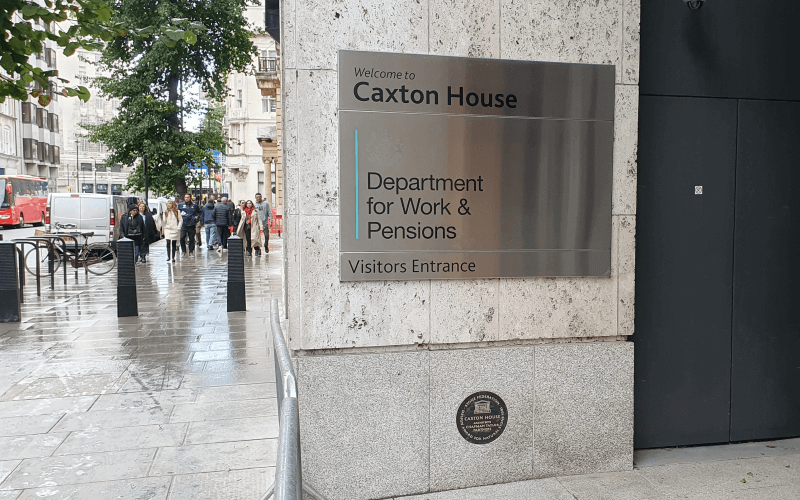Questions have emerged over the role played by local news websites across the country in increasing the number of disabled people applying for disability benefits, casting fresh doubts on the government’s key argument for spending cuts.
Last week, ministers announced proposals for significant cuts and reforms to personal independence payment (PIP), which they said were necessary to address “spiralling costs”.
They pointed to figures which showed PIP spending was expected to grow by nearly two-thirds between 2023-24 and 2028-29 and that there were now more than 33,000 new awards for PIP per month compared to 17,000 before the pandemic.
Rishi Sunak, the prime minister, said last week: “It’s clear that our disability benefits system isn’t working in the way it was intended, and we’re determined to reform it to ensure it’s sustainable for the future, so we can continue delivering support to those who genuinely need it most.”
Many disabled people argued instead that the increase in new PIP claims was not due to a disability benefits system that was too generous but to years of austerity cuts to the NHS and other services and the impact of the Covid pandemic – including the emergence of long Covid – on the nation’s health.
But after being alerted by a disabled campaigner, Disability News Service (DNS) is now asking if the publication of countless news stories on local media websites over the last couple of years could also be playing a significant role in the increasing number of disabled people applying for PIP.
This would suggest that the increase in claimant numbers could be partly because there are hundreds of thousands of disabled people who do not currently claim the benefits they are entitled to.
These “clickbait” news stories follow a familiar pattern, with headlines telling readers “DWP to pay extra £362 a month for one of these 23 conditions”, “DWP says it’ll pay £691 to people with any of 87 common conditions” or “87 common muscle and joint conditions that qualify you for £737 from DWP”.
The headlines are written in a way that is likely to encourage people with those health conditions to visit the news website to investigate if there is financial support that they could qualify for, particularly in a cost-of-living crisis.
Most of the articles, published by local news websites across the country, encourage readers to apply for PIP.
The articles examined this week by DNS were mostly published by two of the largest UK media companies, Newsquest and Reach plc.
DNS asked both companies this week whether the stories had been successful in driving visitors to their websites, and if they believed they were partly responsible for the steep rise in disabled people applying for PIP.
A Reach spokesperson refused to comment on the company’s role in increasing the number of PIP recipients, or whether the stories had been successful in driving visitors to its websites.
A spokesperson for Newsquest, which is owned by Gannett, the largest US publisher of newspapers, said: “Since the beginning of 2024, Newsquest titles have published more than 200,000 stories on a wide range of issues of interest to our readers, with less than a dozen focused on specifically on [sic] generic DWP/PIP stories.
“Our mission is to report the facts as accurately as possible with no agenda.”
When DNS questioned those figures and suggested that some of the articles appeared on multiple Newsquest websites, the company declined to comment further.
Newsquest also suggested that most PIP stories were written by other publishers.
A DWP spokesperson refused to comment on the role of the news stories in increasing new PIP claims.
But the department said that PIP payments were awarded based on how conditions affect the claimant.
And it claimed that it was consulting on PIP reforms to modernise the benefits system, which – it claimed – would better reflect the country’s changing health landscape.
A note from the editor:
Please consider making a voluntary financial contribution to support the work of DNS and allow it to continue producing independent, carefully-researched news stories that focus on the lives and rights of disabled people and their user-led organisations.
Please do not contribute if you cannot afford to do so, and please note that DNS is not a charity. It is run and owned by disabled journalist John Pring and has been from its launch in April 2009.
Thank you for anything you can do to support the work of DNS…

 Government ignores warnings of new DWP deaths, and UN intervention, as MPs pass universal credit cuts bill
Government ignores warnings of new DWP deaths, and UN intervention, as MPs pass universal credit cuts bill Urgent letter from UN to Labour government warns: We think your cuts continue Tory attack on disability rights
Urgent letter from UN to Labour government warns: We think your cuts continue Tory attack on disability rights Race against time to secure DWP deaths evidence before parliament passes new benefit cuts bill
Race against time to secure DWP deaths evidence before parliament passes new benefit cuts bill